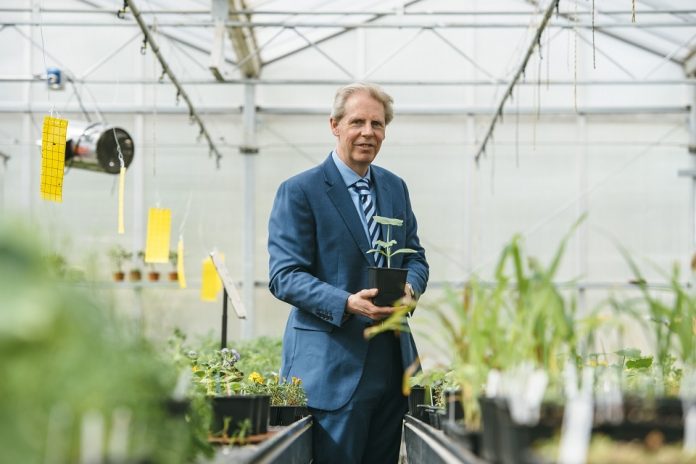Pioneering researchers at the University of Edinburgh will benefit from a £477,015 cash boost of UK Government funding to use cutting edge biotechnology to produce high-value chemicals.
The projects seek to use ingenious scientific methods to bring chemical products to market, many with sustainable manufacturing practices. This could result in lower carbon emissions and meet consumer demand for more sustainable products, moving away from using fossil-based carbon.
Academic institutions have teamed with commercial partners in this programme, to propose new ways of producing products for the vital UK chemical industry. Partners are offering financial support, or in-kind contributions such as materials, facilities and equipment.
This sector of the economy generates £9bn gross value added (GVA) per year and employs 105,000 people.
The funding has been awarded by the Biotechnology and Biological Sciences Research Council (BBSRC) under its Industrial Biotechnology for Improving Production of Higher Value Chemicals programme.
Across the UK, up to £2m was available for grants to support short collaborative projects of between 12 to 24 months with a value up to £250,000.
UK Government Minister for Scotland, Iain Stewart, said:
The UK Government is investing heavily in research and development at Scottish universities to level up all parts of the country through science and innovation.
Academics at the University of Edinburgh are looking for new ways of producing products for the UK’s chemical industry, finding potential solutions for it to become more sustainable and environmentally friendly.
This research is vital, reflecting the government’s UK-wide commitment to tackling climate change. We must keep striving to save our environment and I urge others to join us in this year of climate action ahead of COP26 in Glasgow.
The project led by Professor Louise Horsfall, with commercial partners Unilever, Ingenza and Diageo, is focusing on using biocatalysts in industrial processes, which is expected to boost the sustainable production of chemicals, materials and fuels from renewable resources.
Bio-based processes will make a major contribution to the development of unique and sustainable new products, derived from waste and by-products.
Professor Louise Horsfall, Chair of Sustainable Biotechnology, School of Biological Sciences at the University of Edinburgh, said:
I’m delighted to be working with three fantastic companies, Unilever, Ingenza and Diageo, who are embracing sustainable-thinking for their sectors.
We’re excited to show that synthetic biology and biotechnology can be used to help transition the UK to a more circular and bio-based economy.
Jonathan Hague, VP Science & Technology, Unilever Home Care, said:
Unilever is committed to removing all fossil-based ingredients from our cleaning and laundry products by 2030 as part of our Clean Future strategy.
Together with the University of Edinburgh, Unilever will research naturally derived enzymes that are ideal replacements for fossil carbon-derived cleaning chemicals. The new enzymes will also perform at low temperatures, further reducing the environmental footprint of cleaning.
Unilever is grateful to the BBSRC for supporting efforts to innovate for a more sustainable future.
The project led by Professor Gary Loake, with industrial partner Green Bioactives, will establish a sustainable, biomanufacturing platform for World Health Organisation (WHO) essential medicine that is currently produced largely by unsustainable manufacturing practices which also generate toxic by-products.
Professor Gary Loake, of the Institute for Molecular Plant Sciences at the University of Edinburgh and founder of Green Bioactives, said:
We are excited to have this opportunity to undertake cutting-edge research and development with our industrial partner, Green Bioactives, located at the nearby Roslin Innovation Centre, Edinburgh.
We anticipate this work will help the UK high value chemical sector move towards a more sustainable future, driving job creation and associated prosperity.







